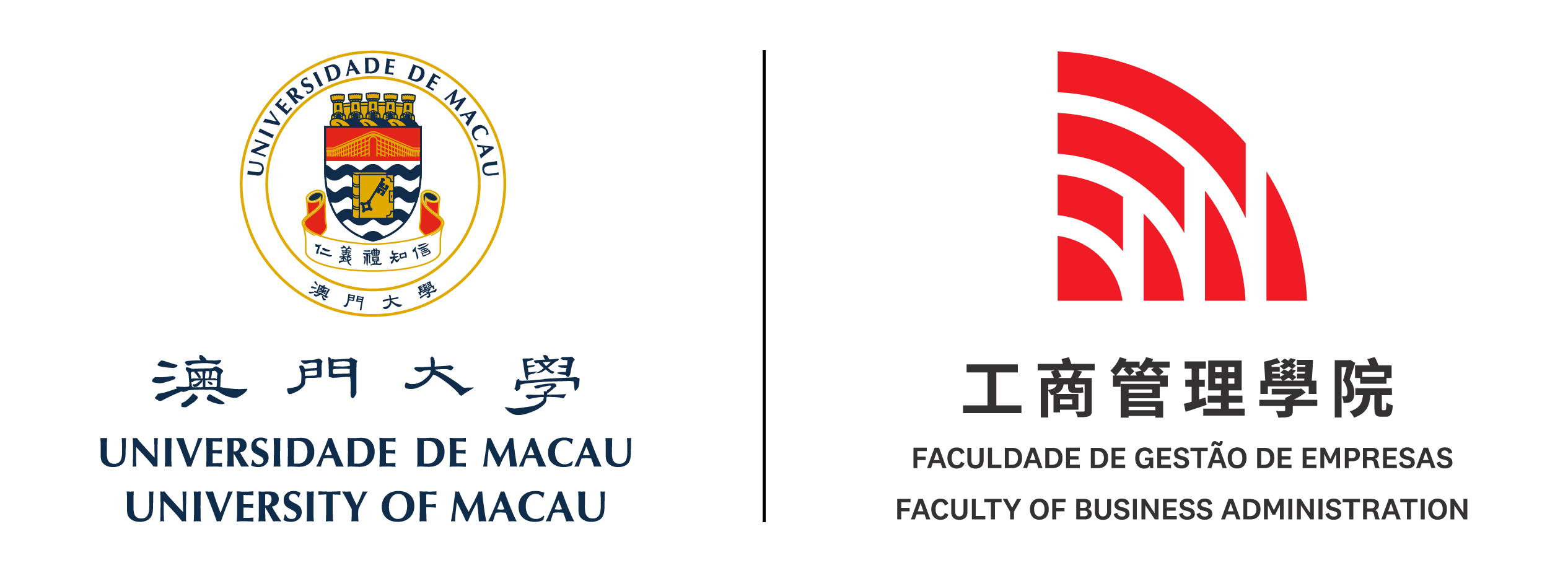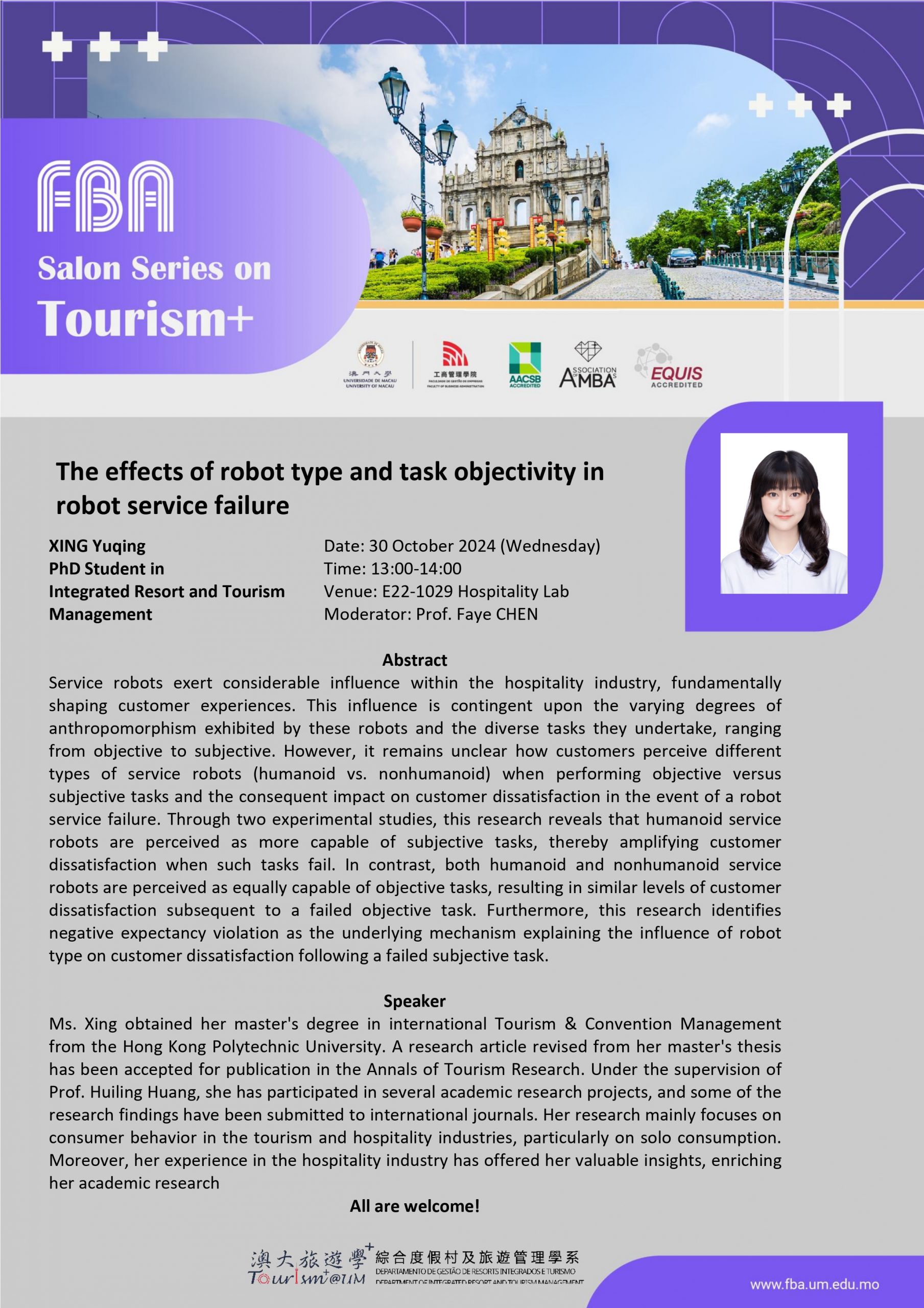The effects of robot type and task objectivity in robot service failure
Date: 30 October 2024 (Wednesday)
Time: 13:00-14:00
Venue: E22-1029 Hospitality Lab
Moderator: Prof. Faye CHEN
XING Yuqing
PhD Student
Abstract
Service robots exert considerable influence within the hospitality industry, fundamentally shaping customer experiences. This influence is contingent upon the varying degrees of anthropomorphism exhibited by these robots and the diverse tasks they undertake, ranging from objective to subjective. However, it remains unclear how customers perceive different types of service robots (humanoid vs. nonhumanoid) when performing objective versus subjective tasks and the consequent impact on customer dissatisfaction in the event of a robot service failure. Through two experimental studies, this research reveals that humanoid service robots are perceived as more capable of subjective tasks, thereby amplifying customer dissatisfaction when such tasks fail. In contrast, both humanoid and nonhumanoid service robots are perceived as equally capable of objective tasks, resulting in similar levels of customer dissatisfaction subsequent to a failed objective task. Furthermore, this research identifies negative expectancy violation as the underlying mechanism explaining the influence of robot type on customer dissatisfaction following a failed subjective task.
Speaker Bio
Ms. Xing obtained her master’s degree in international Tourism & Convention Management from the Hong Kong Polytechnic University. A research article revised from her master’s thesis has been accepted for publication in the Annals of Tourism Research. Under the supervision of Prof. Huiling Huang, she has participated in several academic research projects, and some of the research findings have been submitted to international journals. Her research mainly focuses on consumer behavior in the tourism and hospitality industries, particularly on solo consumption. Moreover, her experience in the hospitality industry has offered her valuable insights, enriching her academic research.
All are welcome!


